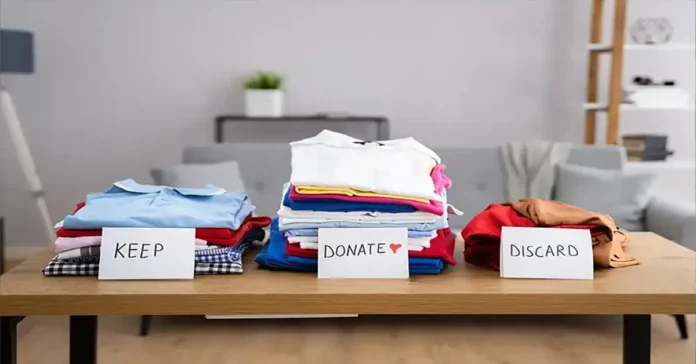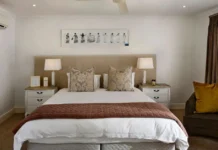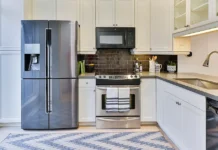Decluttering your life is a powerful step toward creating a more organized, stress-free environment. Decluttering is essential whether you’re embarking on a renovation, moving to a new home, or simply seeking a fresh start. Begin by sorting through your belongings and identifying items that no longer serve you. Consider temporarily using self-storage solutions to house items during your decluttering process.
Utility and box storage are practical tools for keeping everything in order while deciding what to keep, donate, or discard. You can transform your space into a more functional and peaceful area by systematically decluttering. This not only makes daily living easier but also provides a sense of clarity and control over your environment.
Why to Declutter Your Life?
Decluttering your life is essential for creating a more organized and stress-free environment. Removing unnecessary items makes space for what truly matters, leading to increased productivity and a clearer mind. Decluttering also enhances your living space, making it more functional and enjoyable. It can be constructive during times of change, such as moving or renovating, as it simplifies the process and reduces stress. Overall, decluttering allows you to focus on what’s important, improving your physical space and mental well-being and enabling you to live a more balanced, purposeful life.
Keep: Items that are Useful in your Daily Life
The average Indian household produces a lot of waste every day. However, as part of your decluttering effort, you do not need to toss away everything you do not use frequently.
How to decide what to keep is as follows:
- Keep a list of the things you possess and lack.
- Record the items you use.
- Create a scrapbook with your favourite pictures.
- Store the souvenirs that have special meaning for you.
- Get rid of anything that has lost its personal meaning for you.
- If you can, give your electronics a second chance.
Once you have this pile sorted, replace them in your closet in an organised manner. Use drawer dividers and organisers to keep the clutter from re-emerging over a period.
Dispose of Items that you no longer have a use for
If you want to declutter your home, start by looking at the unneeded household items lying around. Have you ever considered giving them to a worthy cause? For example, giving away your surplus furniture benefits both you and the people who get it; thrift and second-hand stores often collect items from your home. Moreover, you will feel good about yourself knowing that you did something good by donating your old furniture rather than creating more waste.
If you have a closet full of items you have not worn in weeks, months, or even years, why not give it away or create something else from it like scrap craft?
Put In Storage: Seasonal or Sentimental Items
We keep things around because they make us happy in our homes. Whether it is a favourite blanket or a piece of furniture, we want to keep them. A good decluttering strategy to store such favourites is to use storage bins. This technique works fantastically for seasonal things like Christmas gifts or holiday decorations. What about sentimental objects, though? Many are either purchased on an impulse or gifted but are not functional. How do you choose which items to preserve and which to throw away? Here are some suggestions to aid you in organising your possessions.
- Arrange everything in one location – This helps you start with a clean slate. Make your way along the things that need to be given away or passed down.
- Classification – Place clothing next to books, for instance, and culinary materials close to the stove, among other things.
- Verify that there is enough space for everything. A storage bin can help you tidy your home and store items.
- Make a list of what you want to keep – Make a list of everything that makes you happy or promotes your ideal way of life. You can always safely store the items that have value but are not used regularly in a Self-Storage facility. The rest can then be removed by going through the list.
- Take inventory – Once you have gone through everything, take stock of how much space you have left.
Pro-tip: Try a “Maybe box”
You can even consider making use of ‘maybe boxes’ to declutter one’s home. This is a powerful method to experience life without throwing anything right away. You know what you do not want, but you could still desire it. “Maybe boxes” allow you experience life without something before deciding to throw it away permanently.
Our homes tend to become cluttered quite naturally. In fact, according to a global Hygiene Home Truths Study, India is among the worst when it comes to hygiene. The study, 51% of Indian domestic surfaces were unsatisfactory and very bacterially polluted. This implies that we have excess clutter without even realising it. We frequently lose track of items’ origins or how they came to be in our homes. Cleaning out extra stuff and classifying them should be the first step in decluttering your home. After completing that, you can choose whether these items belong in your home or not.
Final Words – Declutter Your Life
In conclusion, decluttering your life is a transformative process that can greatly enhance your living space and overall well-being. You can create a more orderly and functional environment by organizing your belongings and utilizing tools like utility storage and box storage. Whether preparing for a renovation, moving, or simply seeking to simplify your life, decluttering allows you to focus on what truly matters. Self-storage can be valuable in this process, offering temporary solutions while you sort through your items. Embracing decluttering improves your physical space and brings mental clarity and peace, enabling you to live more efficiently and joyfully in a space that truly reflects your needs and desires.
FAQs for Declutter Your Life
A: Start by identifying areas in your home or life that feel cluttered or overwhelming. Focus on one space at a time to make the process manageable.
A: Ask yourself if each item is valuable, brings you joy, or serves a purpose. If not, consider donating, recycling, or discarding it.
A: Set small, achievable goals and reward yourself for completing them. Visualize the end result—a clean, organized space—to stay motivated.
A: Either method works. Decluttering by room helps tackle one space at a time, while decluttering by category (like clothes or books) can provide a more focused approach.
A: Self-storage can temporarily hold items you’re unsure about keeping. It’s also useful for storing seasonal or rarely used items, freeing up space at home.
A: Regularly review your belongings, practice mindful shopping, and set up systems for organizing daily items to prevent clutter from accumulating again.
A: Keep a few meaningful items and consider taking photos of others. This way, you preserve the memories without keeping everything.
A: Donate, recycle, or sell items in good condition. Discard items that are broken or no longer useful.
A: The time varies depending on the amount of clutter and your pace. It can take a few days to several weeks to fully declutter a home.
A: Yes, decluttering can reduce stress and anxiety by creating a more organized and peaceful environment, improving mental clarity and well-being.








